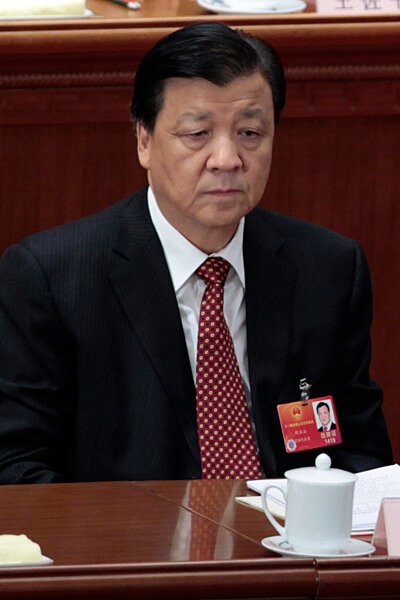Liu Yunshan is a former journalist and PR specialist – with distinctly Chinese characteristics.
Far from being an advocate for freedom of expression, Mr. Liu is China’s top censor; as head of the Communist Party’s propaganda department, he oversees and does his best to control both the traditional media and the Internet.
It is his office that issues daily directives to Chinese newspapers, TV stations, and Internet portal,s telling them which stories they are allowed to cover and how they should present them.
During the 10 years that Liu has been in his job, there has been no sign of any relaxation of strict government controls over information and its presentation. Some critics say things have actually got worse over the past decade.
Last year, for example, when a high speed train came off the rails near the city of Wenzhou in an accident that killed 38 people and sparked a torrent of online commentary, Liu’s reaction was to clamp down on reporting of the tragedy and to try to wipe all references to it off personal blogs.
At the same time, Liu has overseen a major push to expand China’s international “soft power” by boosting the overseas presence of state-owned media. CCTV, the official TV broadcaster, has opened large regional bureaus in the United States and Africa, while the official English language “China Daily” has launched US and British editions.
Like many offspring of senior Communist Party officials, Liu’s son Liu Lefei has done well. He is a prominent private equity investor, and Fortune magazine once named him one of the 25 most powerful business people in Asia.








